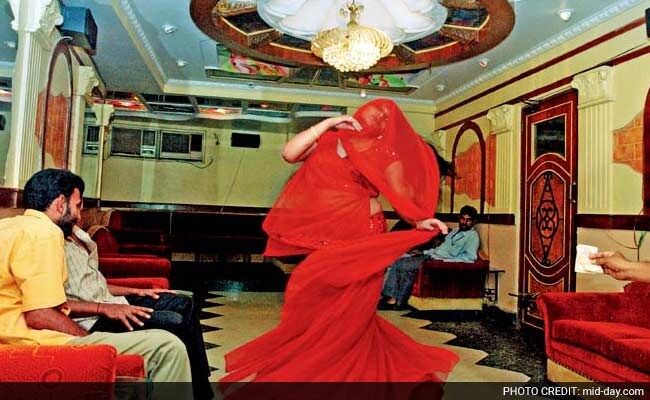
An advocate for bargirls said CCTV cameras at the bars would not just show the dancers, but also the patrons, who might not want to be identified. (File Photo)
- SC tells Mahrashtra govt to give licenses to dance bars by March 15
- SC rejects government's plea to install CCTVs in dance bars
- Bar owners moved court when cops set 24 conditions before giving licenses
Did our AI summary help?
Let us know.
Mumbai:
As the Supreme Court directed the Maharashtra government to grant licences to dance bars by March 15, it also quashed the state's proposal to monitor activity inside the bars through live CCTV feeds. But the state remains unperturbed by the SC's directive and said it might make a legislative provision to empower the police to monitor and prevent any obscenity in the bars.
"The state can't permit obscenity it has seen in the past in dance bars. We will approach the Supreme Court with an alternative. State government is also contemplating to move a suitable legislation [in this regard]," Chief Minister Devendra Fadnavis told the media after the apex court's directives were made public on Wednesday.
The bar owners had moved the SC after Maharashtra Police imposed 24 new conditions on them before allowing them to open dance bars. The court asked the government to grant licences by mid-March after modifying seven of those conditions.
In addition, the court also forbade CCTV monitoring of the performance area since it would be a violation of privacy. Cameras will only be allowed at the entry and exit points of the bars. The SC also clearly defined that only four performers can be allowed on stage at a time, while the rest can wait at the green room. However, the government might still go the extra mile and introduce legislation in the forthcoming Budget session to ensure that its police force is allowed some legal means to monitor activities inside dance bars.
While talking to news channels in New Delhi, senior advocate Rajiv Dhawan, who appeared for a bargirls union, opposed the proposal for CCTV cameras. "CCTV in shops and restaurants are installed to ensure no one steals. What will be shown in the CCTV are not just the bar dancers, but even the patrons, some of who may not want to be identified," NDTV quoted him as saying.
Long battle
The Maharashtra government had ordered a blanket ban on dance bars in 2005. The ban was challenged and lifted by the Bombay High Court in 2013. Following the verdict, the state had amended the law to crack down on bars, but that too was scrapped by the court. In February this year, dance bar owners had challenged the conditions for permit, following which Wednesday's final verdict was given in the matter.
Industry speak
"We are happy that some of the points that were irrelevant have been completely rejected by the court, including the CCTV thing. We are ready to sit with the government and try to make this work. If there are any issues relating to illegality, the government can and should take stern action against the same and we will support it," said a representative of AHAR (Indian Hotel and Restaurant Association).
(This story has not been edited by NDTV staff and is auto-generated from a syndicated feed.)
"The state can't permit obscenity it has seen in the past in dance bars. We will approach the Supreme Court with an alternative. State government is also contemplating to move a suitable legislation [in this regard]," Chief Minister Devendra Fadnavis told the media after the apex court's directives were made public on Wednesday.
The bar owners had moved the SC after Maharashtra Police imposed 24 new conditions on them before allowing them to open dance bars. The court asked the government to grant licences by mid-March after modifying seven of those conditions.
In addition, the court also forbade CCTV monitoring of the performance area since it would be a violation of privacy. Cameras will only be allowed at the entry and exit points of the bars. The SC also clearly defined that only four performers can be allowed on stage at a time, while the rest can wait at the green room. However, the government might still go the extra mile and introduce legislation in the forthcoming Budget session to ensure that its police force is allowed some legal means to monitor activities inside dance bars.
While talking to news channels in New Delhi, senior advocate Rajiv Dhawan, who appeared for a bargirls union, opposed the proposal for CCTV cameras. "CCTV in shops and restaurants are installed to ensure no one steals. What will be shown in the CCTV are not just the bar dancers, but even the patrons, some of who may not want to be identified," NDTV quoted him as saying.
Long battle
The Maharashtra government had ordered a blanket ban on dance bars in 2005. The ban was challenged and lifted by the Bombay High Court in 2013. Following the verdict, the state had amended the law to crack down on bars, but that too was scrapped by the court. In February this year, dance bar owners had challenged the conditions for permit, following which Wednesday's final verdict was given in the matter.
Industry speak
"We are happy that some of the points that were irrelevant have been completely rejected by the court, including the CCTV thing. We are ready to sit with the government and try to make this work. If there are any issues relating to illegality, the government can and should take stern action against the same and we will support it," said a representative of AHAR (Indian Hotel and Restaurant Association).
(This story has not been edited by NDTV staff and is auto-generated from a syndicated feed.)
Track Latest News Live on NDTV.com and get news updates from India and around the world

